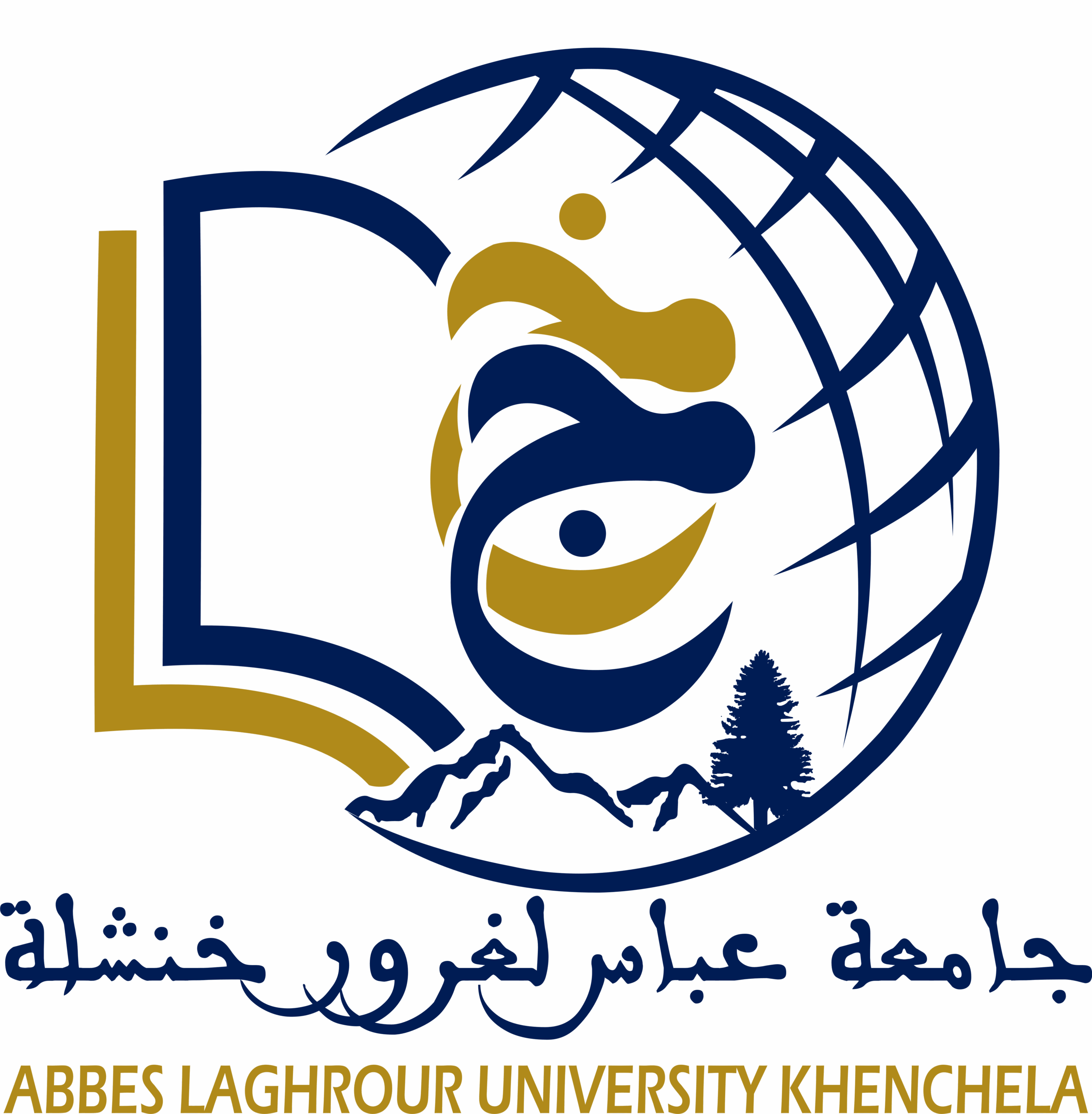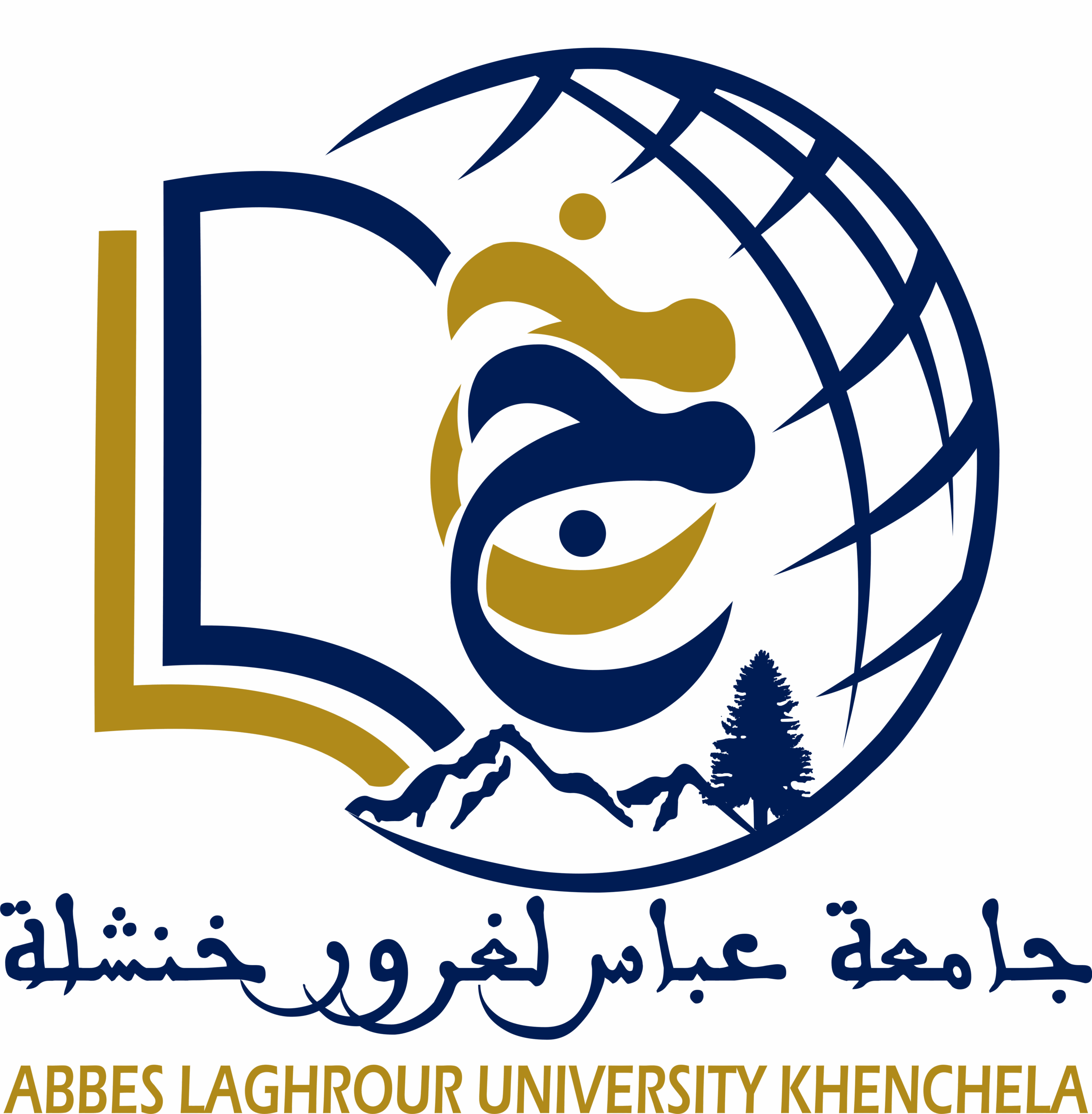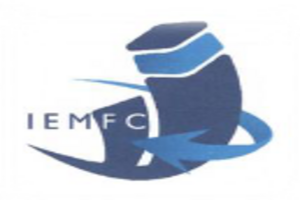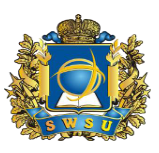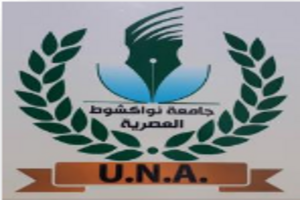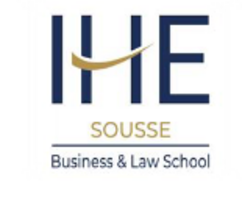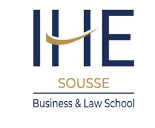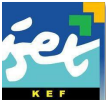نشاطات

اعلان عن فتح باب الترشح لعضوية الهيئات العلمية
اعلان عن فتح باب الترشح لعضوية الهيئات العلمية تعلن كلية العلوم والتكنولوجيا عن فتح باب الترشح لتجديدعضوية الهيئات العلمية للأقسام التالية : 1. قسم علوم المادة 2. قسم الهندسة الميكانيكية 3. قسم الهندسة المدنية وكذا تمثيلهم على مستوى المجلس العلمي للكلية و هذا ابتداء من 27 ماي 2025 الى غاية 09 جوان 2025، حيث يتم إيداع طلبات الترشح إلكترونيا عن طريق منصة الترشح عبر الرابط : رابط التسجيل في منصة الترشح لعضوية الهيئات العلمية ملاحظات هامة فيما يخص تمثيل سلك الأساتذة المساعدين على مستوى المجلس العلمي للكلية، فإن جميع الأساتذة المساعدين بجميع أقسام الكلية معنيون بالترشح. أما بالنسبة للمجلس العلمي للجامعة، فإن جميع أساتذة الكلية (مصف الاستاذية) معنيون. استمارة الترشح لعضوية اللجنة العلمية للقسم (1) استمارة الترشح لعضوية المجلس العلمي للجامعة (1) استمارة الترشح لعضوية المجلس العلمي للكلية (2) تصريح بوكالة (1)...اقرأ أكثر
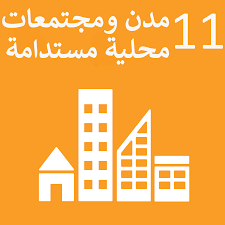
Sdg11: Sustainable Cities And Communities
11Sustainable cities and communities Operational measures ?Does your university provide public access to cultural buildings, monuments or heritage landscapes Yes, and this is evident by the internships and scientific outings .a scientific exit for the “Bernoulli Hydraulic Club”, specifically the “stitch mouth closure” on 18/10/2023 :link A scientific trip to Biskra – exactly Sidi Naji gorge where the shrine of Uqba ibin Nafi al-Fihri was visited on 13/02/2024 :link Scientific trip to the municipality of “Lamsara” in the city of Khenchela, which resulted in a visit to the historical museum in the area of “Lamsara” the historical house that hosted the meeting of 31/10/1954 The martyr village exterminated by French colonialism on: 12/11/1954 Photo gallery via Telegram channel at the following link: https://t.me/univkhenchelaofficiel40/14689 ?single ?Does your university as an authority provide public access to libraries including books and publications Yes, it provides this through the digital repository that enables access to books and publications at the university Link : http://dspace.univ-khenchela.dz:4000/home ?Does your university as an authority provide public access to museums, exhibition spaces, galleries, artworks, museum Yes availability This is illustrated by: Visit the historical museum in the municipality of “Lamsara” Khenchela province https://t.me/univkhenchelaofficiel40/14689 ?single ,,,presentation of students on the occasion of 17/10/1961, which simulates this occasion Organizing historical and cultural intellectual competitions Link:https://univ-khenchela.com/explore/news.php?news=502 Organizing study days and historical seminars to commemorate historical events such as the study day on the occasion of the seventieth anniversary of the liberation revolution 11/01/1954 Link: https://www.facebook.com/share/p/1AQmtcaWfG/ ?Does your university as an authority provide free public access to open spaces and green spaces Yes, within the limits of the programmed possibilities for this ?Does your university contribute as a body to the local arts in terms of the number of annual public performances of choirs, theater, and university orchestras Yes, through the activities provided by the Theater Club to the university as well as the performances provided by the university cinema such as documentaries, for example Theater Club page link https://www.facebook.com/groups/492225856279937 Link: https://www.facebook.com/share/p/15F4UkDTdr/ As well as the shows provided by the university cinema, such as documentaries, for example Link: https://www.facebook.com/share/p/19XFpEFTe4/ Link: https://www.facebook.com/share/p/15THtkdQMT/ ?Is your university running out as a body for projects to register and preserve intangible cultural heritage such as folklore, traditions, language and local knowledge Yes, through the establishment of historical clubs such as the “Free Algeria” club at the Faculty of Social and Human Sciences Link: https://www.facebook.com/profile.php?id=61568141342096 Organizing international workshops such as a workshop Link https://univ-khenchela.com/explore/events.php?event=2988 University expenses: laboratories, forums, workshops, agreements, study days, scientific outputs Link https://t.me/univkhenchelaofficiel40/14570?single&fbclid=IwY2xjawGdVTtleHRuA2FlbQIxMAABHbyDsomu-bCWq1ngpqankqZbrqrxTrBRm1v9AWVoYuOMeaAhONsvsynyeA_aem_fe8qq4qGzceSLjKqczAyNQInternational workshop which was on 10/30/2024 Link: https://univ-khenchela.com/explore/events.php?event=2988 Agreements such as the scientific cooperation agreement between the University of Khenchela and the Islington Center for English Language in London on 10/08/2024 Link https//youtu.be/q2l0cXj1B4E Startups especially What is related to heritage and arts Sustainable Practices 11.4 Does your university as a body measure and set goals for the most sustainable mobility (walking, cycling, or other non-motorized transportation, mass transit vehicles, shuttle buses, public transport, motorcycles, railways Yes, by providing mass transportation (student buses) where 51 buses were deployed, in addition to 9 private transport vehicles, including 2 utility vehicles Does your university as a body encourage or allow remote work or remote work for employees as a matter of policy or standard practice or offer an intensive work week to reduce employee mobility Is your university as a body taking action to promote more sustainable mobility (e.g. provision of free or subsidized buses or shared transport schemes, provision of bicycle parking and storage, provision of bicycle paths, bicycle and pedestrian plan or policy, bike sharing program, free or discounted transport tickets, car, van or shared ride-sharing program, reduced parking fees or perential parking for users of shared cars or vans). Or car sharing program, electric vehicle charging stations and preferred parking for fuel-efficient vehicles Yes, as it worked to provide free transportation for students, car insurance (an agreement with the National Insurance Company SAA), and parking lots for students, professors, and employees. It also provides group transportation for scientific outings, trips – university services, as well as ambulances (02) with health services Does your university as a body encourage or allow remote work or remote work for employees as a matter of policy or standard practice or offer an intensive work week to reduce employee mobility ? Yes, it is encouraged, according to its capabilities ?Does your university as an authority provide affordable housing for its employees Yes, housing is available in different formats such as functional With an average monthly rent of 2000 DZD ?Does your university as a body provide affordable housing for students Yes, it provides, as accommodation for students is free of charge, in addition to free food ?Does your university prioritize pedestrian access to campus Yes, priority is given while Each university’s complex includes a special entrance for pedestrians only ?Does your university work as a body with local authorities to address planning or development issues including ensuring that locals have access to affordable housing Do not work with the authorities and do not interfere in the provision of housing for the local population Does your university as an authority build new buildings according to sustainability standards (if yes, does it follow a standard or a national body such as the World Green Building Council that you accredit? Do not build buildings Does your university as an authority build on abandoned sites where possible (abandoned sites are those that have witnessed previous and recent construction) ? It does not build abandoned sites, but rather re-exploits abandoned urban areas, such as converting the former university library area into the University of Continuing Education, and the exploiting the residential area of the old economical faculty building and converting it into an intensive language education center. download file ...اقرأ أكثر
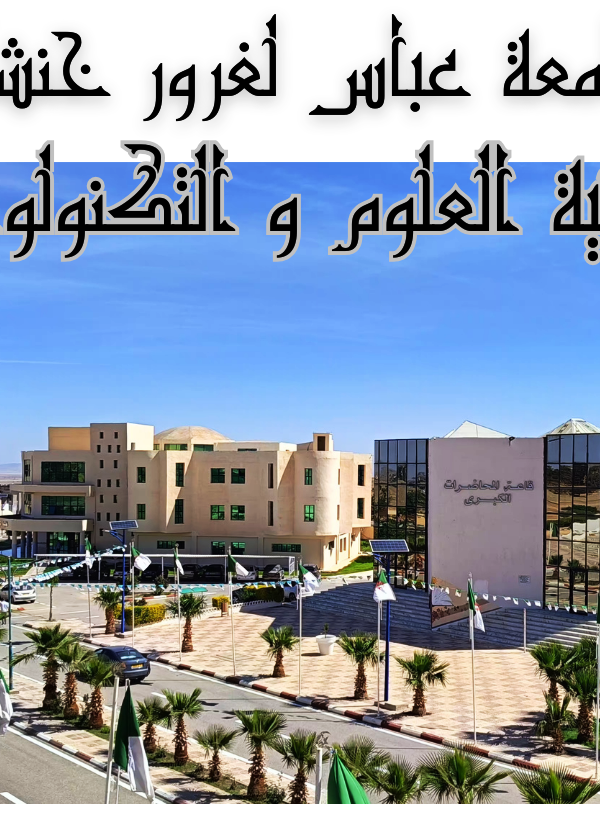
إعلان لطلبة الهندسة المدنية بخصوص الامتحانات التعويضية
قسم الهندسة المدنية...اقرأ أكثر
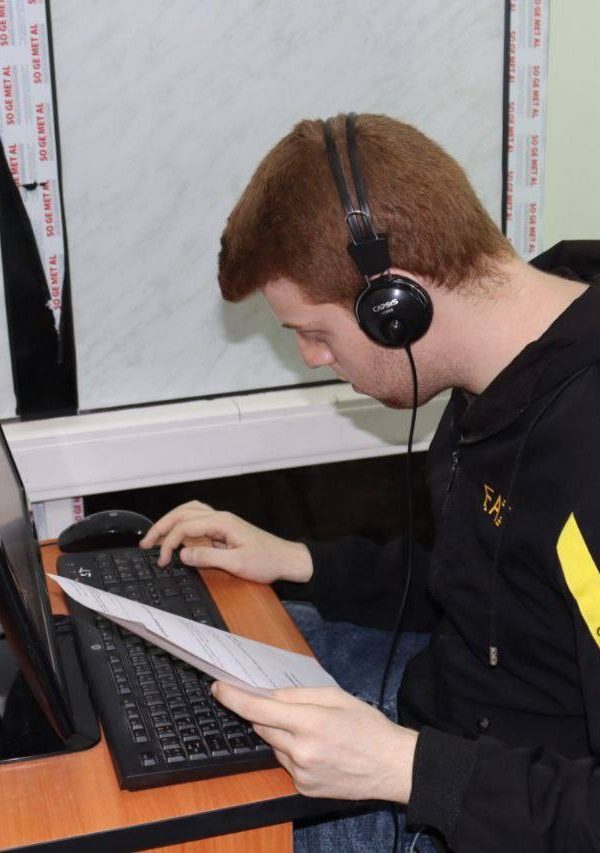
اختبار تحديد مستوى اللغة الإنجليزية لطلبة الدكتوراه
“بناءً على توجيهات إدارة الجامعة، وتحت إشراف السيدة نائب مدير الجامعة للبحث العلمي، تم تنظيم اختبار تحديد مستوى اللغة الإنجليزية لطلبة الدكتوراه الجدد بتاريخ 26 ماي 2025، وذلك في حرم جامعة عباس لغرور بخنشلة. جاء هذا الاختبار ضمن إطار الاستعدادات الأكاديمية للسنة الجامعية 2024-2025، حيث تمت عملية التنفيذ وفق آليات مُحكمة لضمان الفعالية والشفافية.”...اقرأ أكثر
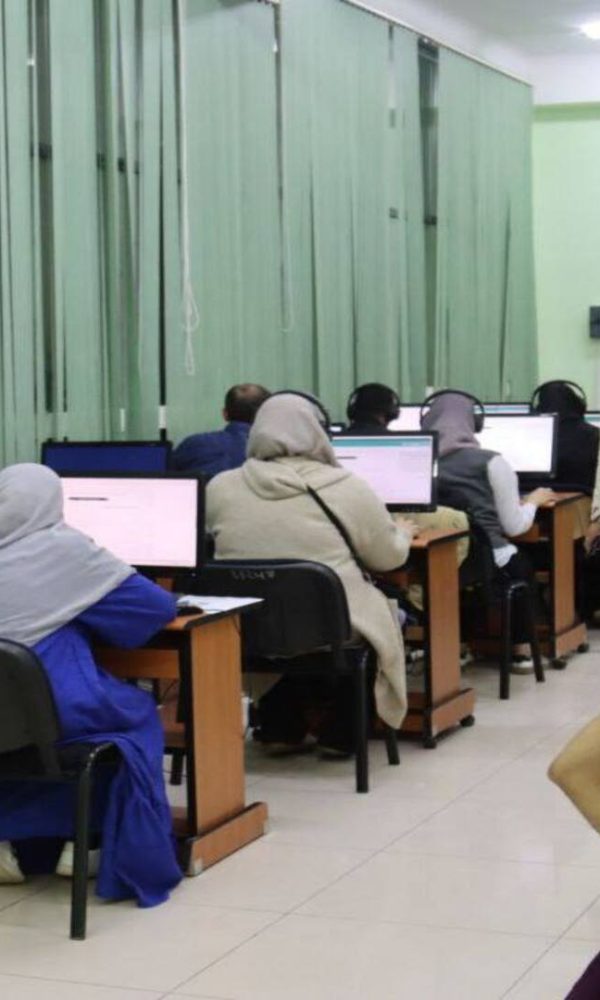
امتحان_تحديد_المستوى في مادة اللغة الانجليزية لطلبة الدكتوراه الجدد
امتحان_تحديد_المستوى في مادة اللغة الانجليزية لطلبة الدكتوراه الجدد بعنوان السنة الجامعية 2024-2025 أجريت اليـوم 26 مـاي 2025؛ بجـامعة عـباس لغـرور خنشلة، وتحت إشراف السـيدة نائب مـدير الجامـعة للبحـث العلمي #امتحان_تحديد_المستوى في مادة اللغة الانجليزية لطلبة الدكتوراه الجدد بعنوان السنة الجامعية 2024-2025 وذلك في ظروف تنظيمية جيدة....اقرأ أكثر
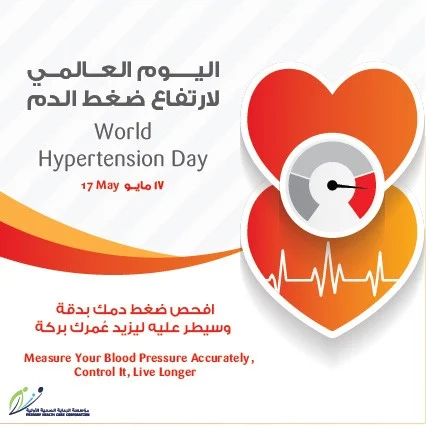
أساسيات قياس ضغط الدم و الخياطة الجراحية
بمناسبة اليوم العالمي لضغط الدم المصادف ل 17 ماي و بمناسبة يوم الطالب يدعوكم نادي إلهام في الطب للمشاركة في ورشتي أساسيات الخياطة الجراحية أساسيات قياس ضغط الدم و ذلك يوم الأربعاء 28 ماي 2025 على مستوى ملحقة كلية الطب ...اقرأ أكثر
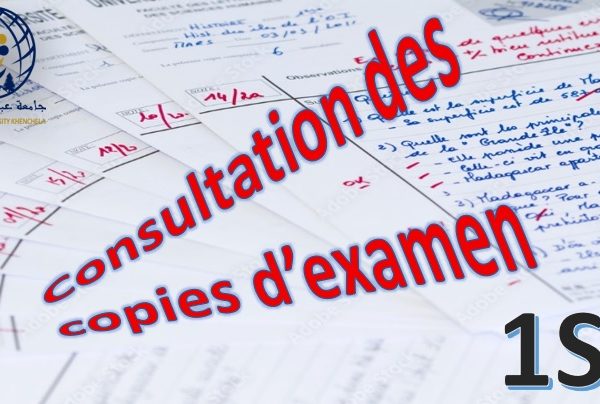
برنامج معاينة أوراق الامتحانات
نعلم طلبة السنة الاولي علوم وتكنولوجيا ان معاينة اوراق الامتحان تكون حسب الجدول التالي:...اقرأ أكثر
This table organizes all the programs, sub-programs, and their components in a structured format. Each main category is clearly distinguished, with related programs and their specific elements listed hierarchically. The table makes it easier to see the comprehensive nature of the support systems and how they interconnect. Program Category Program Sub-Program Components Staff Support Programs Student Accompaniment Program Campus Tours – Central library and usage- Lecture halls and laboratories- Sports and recreational facilities- Medical clinic- Student services offices Workshops – University electronic system usage- Course registration methods- Electronic resources access- Effective study methods Academic Counseling Services Regular Sessions – Weekly (struggling students)- Monthly (regular students)- Semester progress reviews Monitoring – GPA tracking- Attendance rates- Test performance- Extracurricular participation Improvement Plans – Tutoring- Study skills- Time management- Stress management Peer Support System Review Sessions – Homework solutions- Material review- Test preparation- Study methods sharing Study Groups – Subject-specific groups- Project groups- Exam preparation groups Student Motivation – Appreciation certificates- Symbolic rewards- Activity points Special Needs Support Facility Preparation – Wheelchair ramps- Braille signage- Equipped elevators- Designated parking Curriculum Adaptation – Braille materials- Audio recordings- Assistive software- Extended exam time Support Services – Individual counseling- Support groups- Inclusive activities- Family communication Staff Support Programs Career Development Administrative Training – Leadership skills- Team management- Problem-solving- Decision-making Technical Skills – Administrative software- Database management- Information security- Digital communication Communication Skills – Effective communication- Report writing- Meeting management- Public relations Skills Workshops Technical Training – Learning management systems- Accounting software- Project management- Information security Work Skills – Time management- Pressure handling- Conflict resolution- Customer service Diversity Support Cultural Events – Cultural days- Art exhibitions- Discussion seminars- Heritage celebrations Equality Programs – Diversity workshops- Anti-discrimination- Cultural awareness- Workplace inclusion Faculty Support Programs Professional Development Educational Workshops – Modern teaching strategies- Effective assessment- Active learning- E-learning Research Skills – Research methodologies- Scientific publishing- Project management- Research ethics Academic Events – Conference participation- Seminar organization- International workshops- Experience exchange Mentor System New Faculty Support – Systems introduction- Teaching methods- Classroom management- Assessment techniques Ongoing Support – Regular meetings- Performance evaluation- Curriculum development- Problem-solving Research Network Research Groups – Team formation- Joint projects- Experience exchange- Joint publication Publication Support – Writing workshops- Peer review- Translation support- Publication funding General Objectives Educational Environment Curriculum – Content updates- Modern methods- Educational technologies- Continuous assessment Facilities – Classroom equipment- Laboratory updates- Educational resources- Interactive learning Equal Opportunities Policies – Fair admission- Financial support- Support services- Equal opportunities Empowerment – Disadvantaged support- Study assistance- Career guidance- Training opportunities Performance Evaluation – Clear standards- Continuous measurement- Feedback- Improvement plans Development – Program review- Method updates- Service improvement- Satisfaction measurement All these programs are subject to continuous evaluation and development to ensure their quality and effectiveness in achieving their objectives. 10-06-07...اقرأ أكثر
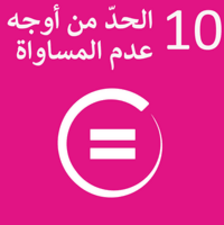
Sdg10: Reduced Inequalities
10-06-01 :University Abbas Laghrour Khenchela has a clear non-discriminatory admission policy, following the national standards for admission in Algerian higher education institutions :Basic Admission Criteria Baccalaureate certificate average Compatibility between baccalaureate stream and desired specialization Minimum required averages for each specialization University capacity Positive Policies: Support for people with special needs through special admission and study facilities Consideration for students from remote areas Allocation of certain percentages for outstanding students in specific fields Transparency: Publication of all admission criteria on the university website Making information available to everyone clearly and in detail Regular updates of information 10-06-02 University Abbas Laghrour Khenchela tracks and measures admission for the following groups: Students with Special Needs: Special monitoring of their admission applications through a dedicated office Providing necessary study facilities including adapted equipment and learning materials Allocation of special facilities for their mobility such as ramps, elevators, and accessible classrooms Dedicated support staff to assist with academic and personal needs Regular assessment of facility accessibility and improvements Special examination arrangements when needed Students from Remote Areas: Study of their special needs through surveys and direct communication Providing priority university housing services with extended stay options Monitoring their success and progress rates through academic advisors Transportation assistance during major university events Special orientation programs to help with university integration Additional academic support when needed Female Students: Encouraging their participation in all specializations, particularly STEM fields Monitoring their representation rates in various fields through annual statistics Providing a safe and suitable study environment with dedicated facilities Mentorship programs connecting them with successful alumni Women’s leadership development programs Special support for mothers pursuing education Low-Income Students: Offering comprehensive scholarships covering tuition and living expenses Providing priority university housing with reduced rates Supporting their basic needs through various assistance programs Book and study material allowances Work-study opportunities on campus Financial counseling and support services Monitoring and Evaluation: Regular collection and analysis of enrollment data Annual reports on diversity and inclusion metrics Feedback mechanisms for continuous improvement Regular review and updates of support policies Collaboration with student representatives from each group Development of targeted support based on collected data The university maintains these comprehensive statistics and programs to ensure: Fair representation across all academic programs Equal opportunities for academic success Appropriate support systems for each group’s specific needs Continuous improvement of inclusion policies Creation of a diverse and inclusive academic community Regular assessment and enhancement of support measures This structured approach helps ensure that all students, regardless of their background or circumstances, have the opportunity to succeed in their academic journey at Université Abbas Laghrour Khenchela. 10-06-03 University Abbas Laghrour Khenchela takes planned actions to recruit students, staff, and faculty members from underrepresented groups: Faculty Recruitment Procedures: Employment announcements ensure equal opportunities Encouraging female competencies to apply for academic positions Providing a supportive work environment for people with special needs Consideration of gender balance in employment Student Recruitment: Awareness campaigns in remote areas Special programs to attract outstanding students from disadvantaged areas Offering competitive scholarships Providing residence and transportation services Administrative and Staff Employment: Transparent and fair employment policies Adaptation of work environment for people with special needs Professional development and training programs Equal opportunities for promotion and career advancement These measures aim to ensure diversity and equal representation within the university community. 10-06-04 University Abbas Laghrour Khenchela has a clear anti-discrimination policy: Basic Principles: Equal treatment for all university members Prohibition of all forms of discrimination Ensuring equal opportunities in education and employment Respect for cultural and religious diversity Scope of Application: Students and professors Administrative staff Workers Visitors and university collaborators Protection Procedures: Clear mechanism for reporting discrimination cases Specialized committee for investigating complaints Strict disciplinary measures against violators Protection for discrimination whistleblowers These policies ensure a safe and inclusive environment for all university community members. 10-06-05 University Abbas Laghrour Khenchela has an organizational structure dedicated to diversity and equality: Diversity and Inclusion Office: Reports directly to university administration Includes human rights specialists Works in coordination with various faculties and departments Office Responsibilities: Formulating and implementing diversity and equality policies Providing counseling to administration and students Organizing training courses and awareness workshops Monitoring and resolving discrimination complaints Preparing periodic progress reports Programs and Activities: Human rights awareness programs Cultural diversity promotion events Special needs support initiatives Gender equality promotion activities This structure ensures effective implementation of diversity and inclusion policies throughout the university campus. 10-06-06 This table organizes all the programs, sub-programs, and their components in a structured format. Each main category is clearly distinguished, with related programs and their specific elements listed hierarchically. The table makes it easier to see the comprehensive nature of the support systems and how they interconnect. Program Category Program Sub-Program Components Staff Support Programs Student Accompaniment Program Campus Tours – Central library and usage- Lecture halls and laboratories- Sports and recreational facilities- Medical clinic- Student services offices Workshops – University electronic system usage- Course registration methods- Electronic resources access- Effective study methods Academic Counseling Services Regular Sessions – Weekly (struggling students)- Monthly (regular students)- Semester progress reviews Monitoring – GPA tracking- Attendance rates- Test performance- Extracurricular participation Improvement Plans – Tutoring- Study skills- Time management- Stress management Peer Support System Review Sessions – Homework solutions- Material review- Test preparation- Study methods sharing Study Groups – Subject-specific groups- Project groups- Exam preparation groups Student Motivation – Appreciation certificates- Symbolic rewards- Activity points Special Needs Support Facility Preparation – Wheelchair ramps- Braille signage- Equipped elevators- Designated parking Curriculum Adaptation – Braille materials- Audio recordings- Assistive software- Extended exam time Support Services – Individual counseling- Support groups- Inclusive activities- Family communication Staff Support Programs Career Development Administrative Training – Leadership skills- Team management- Problem-solving- Decision-making Technical Skills – Administrative software- Database management- Information security- Digital communication Communication Skills – Effective communication- Report writing- Meeting management- Public relations Skills Workshops Technical Training – Learning management systems- Accounting software- Project management- Information security Work Skills – Time management- Pressure handling- Conflict resolution- Customer service Diversity Support Cultural Events – Cultural days- Art exhibitions- Discussion seminars- Heritage celebrations Equality...اقرأ أكثر
نتائج السداسي الثاني سنة اولى ماستر اقتصاد نقدي ومالي
الاجابة النموذجية...اقرأ أكثر
نتائج السداسي السادس سنة ثالثة ليسانس اقتصاد نقدي ومالي
الاجابة النموذجية...اقرأ أكثر
نتائج السداسي الرابع سنة ثانية ليسانس علوم اقتصادية
الاجابة النموذجية...اقرأ أكثر
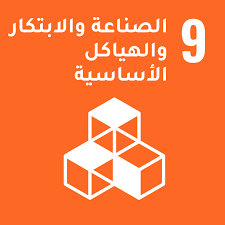
Sdg9: Industry, Innovation And Infrastructure
09- Industry, Innovation and Infrastructure (Goal 9of the Sustainable Development Goals) University Branches Three 06 companies were established at Abbes Laghrour University. – AURES ESSOIL This is by decision No. 121 of 09 April 2023 – Office of Studies in Civil Engineering and Public Works by decision No. 122 of 09 April 2023 – Office of Consultations, Research and Development “at the University of Khenchela” and this is according to decision No. 45 of April 24, 2024 Research income from industry and commerce Research income from industry and commerce: Total 5 300 000 DA Research income from industry and commerce by subject area: STEM 2 100 000 DA Research income from industry and commerce by subject area: Medicine 1 230 000 DA Research income from industry and commerce by subject area: Arts & Humanities / Social Sciences 532 000 DA -The number of employees at Khenchela University is 1 343 employees distributed over six faculties and a central administration with all its facilities, in addition to the Intensive Language Courses Center -The number of faculty members is 763 professors distributed over six faculties -The number of faculty members by subject area: Science and Technology is 265 professors -Number of faculty members by subject area: Medicine is 33 professors considering the newly established medical appendix – Number of faculty members by subject area: Social and Human Sciences is 103 professors 9.Industry, Innovation and Infrastructure: The university presents its progress through: Abbas Laghrour University Khenchela seeks to promote industry and innovation through a set of research projects and initiatives that focus on technology development and infrastructure. These efforts play a vital role in supporting the economic and social development of the region. A. PRFU Research Projects Studies in the Field of Technological Innovation: These studies focus on developing new technologies and innovative solutions to address current industrial challenges. The research includes an analysis of innovations in areas such as artificial intelligence, the Internet of Things, and biotechnology, contributing to enhancing the competitiveness of local industries. Research on Infrastructure Development: These research efforts aim to study the infrastructure needs in the region, such as transportation, energy, and communications. The projects include providing recommendations for developing the existing infrastructure and improving its efficiency, contributing to supporting economic growth. Digital Transformation Projects: These projects include studying how to apply digital transformation technologies in industrial and service institutions. The research aims to enhance operational efficiency and improve customer experience through the use of modern technology. B. Faculty Publications Research in National Technical Journals: Faculty members publish research related to issues of innovation and technology, contributing to enhancing knowledge in this field. The articles address topics such as the application of modern technology in industry and its impact on productivity. International Studies on Industrial Innovation: These studies include comparisons between innovation systems in different countries, providing valuable insights into best practices and global trends. The research focuses on how to improve the innovative environment in Algeria. Scientific Papers on Technological Development: These papers focus on analyzing the latest trends in technological development and their impact on various industries. The research includes studying innovations in areas such as renewable energy, smart manufacturing, and robotics. C. Research Team Outputs Reports on Patents and Innovations: The research teams issue reports that explain the number of patents registered by the university’s researchers, reflecting the level of innovation and development in the institution. The reports also address the assessment of the impact of these innovations on the local market. Studies on the Development of University Infrastructure: These studies include an assessment of the university’s own infrastructure, such as educational facilities and laboratories, and provide recommendations for improvement. The research aims to provide a better educational environment for students. Research in the Field of Sustainable Manufacturing: These research efforts focus on how to achieve sustainable manufacturing through efficient use of resources and waste reduction. The studies include strategies to improve industrial processes and make them more sustainable. These information will be published through: The official website of the University: https://univ-khenchela.com The official Facebook page: https://www.facebook.com/?locale=fr_FR YouTube channel: https://www.youtube.com/watch?reload=9&v=ZghffzdzpVI The dedicated page for Goal 9 on the University’s Sustainable Development website: https://univ-khenchela.com/explore/articles.php?article=1875...اقرأ أكثر
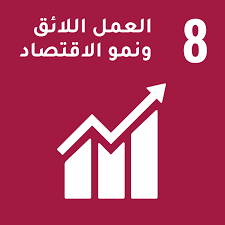
Sdg8: Decent Work And Economic Growth
Decent work and economic growth 8.2Employment 8.2.1Does your university as a body pay all staff and faculty at least the living wage, defined as the local living wage (if government defines this) or the local poverty indicator for a family of four (expressed as an hourly wage) The University of Khenchela is always committed to secure the Interprofessional guaranteed minimum wage – SM|G – to itsworkers (145,43 USD = 20.000,00 DZD after all legal deductions, according to the lastworkers’ wages shift up by the presidentialdecree N” 21-137 dated the 7d of April 2O21,witha back effecting from 1″ fune 2020). 8.2.2 ?Does your university as an institution recognize unions for everyone Under Law No. 90-14 dated 9 Dhu al-Qidah 1410, corresponding to 2 June 1990, regarding the modalities of exercising the right to union representation, as amended and supplemented by Ordinance No. 06-03 dated 19 Jumada al-Thani 1427, corresponding to 15 July 2006, which includes the General Public Service Law, the University of Abbas Laghrour Khenchela has recognized four unions, which are as follows The branch of the National Federation of Higher Education and Scientific Research* The branch of the National Council of University Professors* The branch of the Independent Union of Public Administration Employees* The branch of the Independent Union of Higher Education Employees* ?3.2.3Does your university have a policy on eliminating workplace discriminatio Yes, the university has a clear policy to eliminate discrimination in the workplace, according to Article 27 of the rights and obligations of employees in Ordinance No. 06-03 dated 19 Jumada al-Thani 1427, corresponding to 15 July 2006, which includes the General Public Service Law. This article states: “Employees shall not be discriminated against due to their opinions, gender, origin, or any personal or social circumstances” ?8.2.4Does your university have a commitment against forced labor, modern slavery, and human trafficking Yes, the university has a political commitment against forced labor and modern slavery, according to Article 78 regarding career management in Ordinance No. 06-03 dated 19 Jumada al-Thani 1427, corresponding to 15 July 2006, which includes the General Public Service Law. This article states: ‘The minimum age for joining a public position is set at eighteen (18) full years.’ 06-02-08 ?Does your university as a body have a policy on pay scale equity including a commitment to measurement and elimination of gender pay gaps The University of Khenchela is fulfilled and complyingwith not only the Algerian legislation but also with the international legislations regarding the equality between the two genders, and assure that there is not a1y kind of wages gap among the both genders 07-02-08 ?Does your university as a body measure/track pay scale gender equity The University of Khenchela as an entit) keeps measuring and monitoring employees’ salary indexes and rations leaving no doubt to achieve an ideal equivalence between both gender, via submitting precise quarterly besides semi-annual reports and tables to the Ministy of Higher Education and Scientific Research though its financial and accounting sub direction 8.2.8Does your university have a process that enables employees to appeal regarding employee rights and wages According to the participation and appeal bodies in Ordinance No. 06-03 dated 19 Jumada al-Thani 1427, corresponding to 15 July 2006, which includes the General Public Service Law, the following bodies are established Equal membership administrative committees* Appeal committees* Technical committees* University employees have the right to appeal regarding their rights (financial or administrative) 8.2.9 ?Does your university as an institution recognize labor rights for all, including women 8.3Expenditure per employee 1Number of Faculty Members Abbas Laghrour University in Khenchela has a faculty consisting of 763 professors in the following ranks • Professor: 114 • Senior Lecturer “A”: 280 • Senior Lecturer “B”: 140 • Assistant Professor “A”: 144 • Assistant Professor “B”: 85 They are distributed across six faculties: Faculty of Science and Technology, Faculty of Humanities and Social Sciences, Faculty of Natural and Life Sciences, Faculty of Economic, Commercial and Management Sciences, Faculty of Arts and Languages, and Faculty of Law and Political Sciences Number of Employees and Number of employees with contracts longer than 24 months 2 Abbas Laghrour University in Khenchela has 390 employees working on secure contracts, with 53 in specific ranks, and 179 employees working on contracts longer than 24 months. They are distributed across six faculties: Faculty of Science and Technology, Faculty of Humanities and Social Sciences, Faculty of Natural and Life Sciences, Faculty of Economic, Commercial and Management Sciences, Faculty of Arts and Languages, and Faculty of Law and Political Sciences 8.3.2 University expenditure The Ministry of Higher Education and Scientific Research has been allocated an amounr of 4.039.000,00 DzD for the universigr of khenchela budget This dotarion split as following: The first term is for the employees’wages and salaries including all sorts of compositions and promorions an amounr of 3.600.140.000,00 DZD. The second term is considering the expenditures and expenses regarding the eguipment and the universigr’s purchases and ordinary necessaries an amount of 438.g60,000,00 DzD Decent Work and Economic Growth:8 :The university documents its achievements in this field through Abbas Laghrour University Khenchela seeks to promote decent work and economic growth through a set of research activities and initiatives that focus on skills development and job creation. A. PRFU Research Projects Labor Market and Employment Opportunities Studies: These studies focus on analyzing the local labor market and the economic sectors that provide job opportunities. The research includes an assessment of the skills needed in the market and provides recommendations for improving vocational education and training programs. Sustainable Economic Development Research: These research efforts aim to study how to achieve sustainable economic development in the region, including strategies to promote entrepreneurship and support small and medium-sized enterprises. The research also explores policies that can foster economic growth. Entrepreneurship Projects: These projects include developing entrepreneurship support programs, including workshops and training courses for beginners. The research focuses on how to encourage youth to start their own businesses and provide the necessary resources for that. B. Faculty Publications Research in National Economic Journals: Professors publish research...اقرأ أكثر
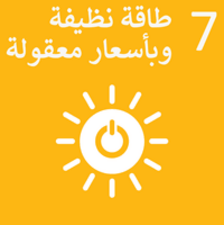
Sdg7: Affordable And Clean Energy
Does your university have a policy in place to ensure that all renovations and new construction projects follow energy efficiency standards? (Relevant standards should be specified.) Yes, within the framework of: Encouraging scientific research in clean energy, which is a fundamental aspect of state policy, through master’s degree final projects in relevant fields offered at the College of Science and Technology. Leveraging research projects for practical application, such as supporting start-ups. Including energy efficiency as a core goal within the institution’s strategic plan ?Does your university have plans to upgrade existing buildings to achieve higher energy efficiency The university’s first initiative in clean energy use involves using solar energy to provide public lighting within the campus, which marks its initial experience requiring expertise in maintenance and management. The university plans to expand the use of solar energy after conducting technical studies and securing necessary funding. Planned applications include night lighting, powering water pumps for drinking water, and supporting other devices such as monitoring and alarm systems ?Does your university have an operational framework for managing carbon and reducing carbon dioxide emissions Our university has several bodies for carbon management and reducing CO2 emissions. Scientific Research in the Field of the Environment: Academic programs and research labs in Chemical Engineering and Renewable Energy focus on resource management, improving energy efficiency, and providing alternative solutions. These programs also work on waste recycling. Renewable Energy Use: Efforts are being made to reduce traditional energy consumption and shift systems toward solar energy or other alternative sources. Awareness and Community Engagement: Awareness campaigns and tree-planting initiatives are organized on campus to encourage students and staff to adopt sustainable practices. Waste Management: Centers for waste collection, recycling, and reducing waste on campus are in place An agreement is being pursued with oil companies, such as SONATRACH, to exchange expertise, solve problems, and train employees ?Does your university, as an institution, have an energy efficiency plan to reduce overall energy consumption Our university is implementing energy efficiency policies to reduce consumption and protect the environment. These measures include the use of renewable energy sources (solar, wind, geothermal) to reduce our carbon footprint, improving building efficiency through better insulation and sustainable materials, and replacing traditional lighting with LED lights equipped with motion sensors. Modern heating, ventilation, and air conditioning (HVAC) systems are being installed, and awareness campaigns encourage students and staff to save energy. Intelligent energy management systems also optimize consumption for a more sustainable future and reduced costs. .. ?Does your university conduct energy audits to identify areas with the highest energy waste Our university conducts regular energy audits to identify areas of high consumption and waste, with the goal of optimizing energy efficiency. These audits include analyzing consumption data, real-time monitoring, evaluating and replacing equipment, checking thermal insulation, and running awareness campaigns. These actions help reduce energy consumption, improve environmental impact, and lower operational costs ?Does your university have a policy regarding divestment from carbon-intensive energy industries, particularly coal and oil Our university implements policies to reduce investments in polluting industries such as coal and oil, in favor of renewable energy sources. These policies include directing investments towards sustainable projects, evaluating and reducing investments in high-carbon-emitting companies, developing sustainability policies, forming partnerships with environmental institutions, and supporting research in clean technologies. These actions aim to improve the university’s environmental performance, reduce its carbon footprint, and contribute to global sustainability :University floor area Abbas Laghrour University in Khenchela spans an area of 43 hectares ?Does your university, as an institution, offer programs for the local community to raise awareness about the importance of energy efficiency and clean energy Our university offers various programs to raise awareness about energy efficiency and clean energy within the local community. These initiatives include hands-on workshops, expert-led conferences, and interactive educational programs for young people, online guides and resources, and partnerships with local institutions. These efforts aim to promote sustainability and encourage the adoption of more environmentally friendly practic ?Does your university, as an institution, work to promote a public commitment toward 100% renewable energy use beyond the campus Our university is actively committed to promoting 100% renewable energy use within the community through various initiatives. These include awareness campaigns about the benefits of renewable energy, collaboration with local institutions and NGOs to support clean energy projects, participation in local and international environmental events, organizing public activities to encourage the adoption of renewable energy, and supporting petitions aimed at promoting a full commitment to renewable energy. These actions aim to encourage a transition towards a more sustainable future that benefits the environment ?Does your university, as an institution, provide direct services to local industry aimed at improving energy efficiency and promoting clean energy Our university provides direct services to the industry in the fields of energy efficiency and renewable energy. These services include training workshops to improve energy efficiency, assessments and studies to identify potential energy consumption improvements, as well as research and development in renewable energy. The university also collaborates with the industrial sector to promote the adoption of sustainable energy practices and offers environmental assessments to reduce the impact of industrial activities. These initiatives aim to improve energy efficiency, reduce the carbon footprint, and support the transition to cleaner and more sustainable energy sources ?Does your university, as an institution, inform and support the government in developing clean energy policies and energy-efficient technologies Yes, the university collaborates with government bodies by organizing events and seminar, providing research insights and policy recommendation to support the development on clean energy, and the adoption of energy-efficient technologies ?Does your university, as an institution, provide assistance to startups that promote and support a low-carbon economy and technology Yes, the university assists startups focused on low-carbon technologies offering resources such as house of entrepreneurship and Business incubator The House of Entrepreneurship and Business incubator are a point of contact which welcome and provide support to businesses creator and project owners who are confronted with questions on any aspect of business life 7. Clean and Affordable Energy: :The university publishes its progress...اقرأ أكثر
نتائج السداسي الثاني سنة اولى ماستر تسويق الخدمات
الاجابة النموذجية نتائج المواد نتائج السداسي...اقرأ أكثر
نتائج السداسي السادس سنة ثالثة ليسانس تسويق
الاجابة النموذجية نتائج المواد نتائج السداسي...اقرأ أكثر
نتائج السداسي الرابع سنة ثانية ليسانس علوم تجارية
الاجابة النموذجية نتائج المواد نتائج السداسي...اقرأ أكثر
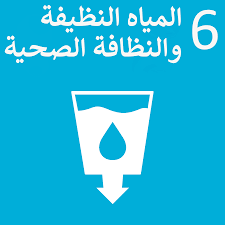
Sdg6: Clean Water And Sanitation
Clean Water and Sanitation 6.2Water Consumption per Capita 06-02-01 Does your university, as an entity, measure the total volume of water used on campus, sourced from network supplies, desalination, or extracted from rivers, lakes, or ?groundwater aquifers Our university does not measure the total volume of water used on campus 06-02-01-01 Volume of water used at the university: incoming (treated/extracted water) No data 06-02-01-02 Campus population Sudents: 11 335 Lecturers: 707 Worker: 502 6.3Water Use and Conservation 06-03-01 ?Does your university have a process for treating wastewater Our university does not have a process for treating wastewater, external sewage treatment plant 06-03-02 Does your university, as an entity, have procedures to prevent contaminated water from entering the water system, including pollution caused by accidents and incidents on campus Yes, our university has procedures to prevent contaminated water from entering the water system, including measures for accidents and incidents, e.g., safety protocols, 06-03-03 ?Does your university, as an institution, provide free drinking water for students, staff, and/or visitors, such as (drinking water fountains) Yes, our university provides free drinking water to students, staff and visitors through the water system located on campus. These fountains are accessible in key areas such as university buildings, student centres and near outdoor spaces to ensure that everyone has access to clean, safe drinking water. In addition, there are water dispensers for a fee. 06-03-04 Does your university, as an institution, apply building standards to reduce water usage? (Relevant standards should be indicated) no information 06-03-05 Does your university landscape in a way that reduces water usage? (For example, using drought-resistant plants) Yes, our university has taken several steps to reduce water usage through sustainable landscaping practices. The campus uses drought-resistant and native plants in many areas to minimize the need for irrigation. These plants are well-suited to the local climate and require less water than traditional landscaping. Additionally, the university has implemented efficient irrigation systems 6.4Water Reuse 06-04-01 ?Does your university have a water reuse policy across the campus No 06-04-02 ?Does your university, as an institution, measure water reuse across the campus No 06-05 Water in the Community 06-05-01 ?Does your university, as an institution, provide educational opportunities for local communities to learn about good water management practice Yes, our university offers a variety of educational opportunities for local communities to learn about good water management practices. These opportunities include Workshops, seminar and Outreach Programs Partnerships with Local Governments Research and Community Engagement Public Access to Research and Resources 06-05-03 ?Does your university, as an institution, support water conservation off-campus Yes, our university actively supports water conservation efforts off-campus through various initiatives and community partnerships. It includes : study programs, final projects of master, doctoral theses and seminar results 06-05-04 Does your university, as an institution that extracts water (for example, from groundwater, lakes, or rivers), use sustainable water extraction techniques on university-owned land both on-campus and off-campus No 06-05-05 ?Does your university, as an institution, collaborate with local, regional, national, or global governments on water security Yes, our university actively collaborates with local, regional, national, and even global governments on water security initiatives. These collaborations take various forms and are part of the university’s broader commitment to addressing water-related challenges through research, policy advocacy, and community engagement 06-05-06 ?Does your university, as an institution, actively promote conscious water use on campus Yes, especially through awareness 06-05-07 ?Does your university, as an institution, actively promote conscious water use in the wider community Yes, our university actively promotes conscious water use in the wider community through a variety of initiatives and programs aimed at raising awareness and encouraging sustainable water practices. Here are some of the key ways the university supports and promotes conscious water use beyond its own campus: . Public Awareness Campaigns.1 2. Partnerships with Local Schools and Organizations. 3. Community Water Projects. 4. Public Lectures and Workshops. 5. Research and Data Sharing. download file ...اقرأ أكثر
نتائج السداسي الثاني سنة اولى ماستر محاسبة
الاجابة النموذجية نتائج المواد نتائج السداسي ...اقرأ أكثر
نتائج السداسي السادس سنة ثالثة ليسانس محاسبة
الاجابة النموذجية نتائج المواد نتائج السداسي ...اقرأ أكثر
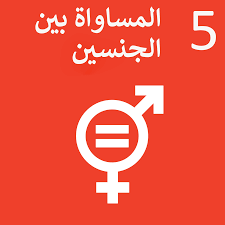
Sdg5: Gender Equality
:Abbas Laghrour University of Khenchela provides comprehensive women’s access programs Women’s Support Programs The university maintains dedicated programs to support female students’ academic success and professional development. These include mentorship programs pairing students with successful female professionals, leadership development workshops, and specialized career guidance services. Regular networking events and professional development seminars are organized specifically for female students to build confidence and professional skills Scholarship and Financial Aid A robust scholarship program specifically targets female students, particularly in traditionally male-dominated fields like STEM disciplines. Financial aid packages include tuition assistance, research grants, and funding for academic materials. Additional support is available for female students with family responsibilities, including childcare assistance and flexible payment plans Academic Excellence Support The university provides specialized academic support services tailored to women’s needs, including study groups, tutoring programs, and research opportunities. Female faculty members serve as academic advisors and role models, offering guidance and support throughout the educational journey. Special workshops focus on academic writing, research methodology, and professional presentation skills Safety and Well-being Initiatives Comprehensive safety measures ensure a secure environment for female students, including well-lit campuses, security escorts, and emergency response systems. The university provides women’s health services, counseling support, and stress management programs. Safe spaces and women’s lounges are available across campus for study, rest, and social interaction Professional Development and Empowerment The university organizes regular career fairs, internship programs, and job placement services specifically designed to support women’s professional advancement. Leadership training programs, entrepreneurship workshops, and business skills development courses are offered to enhance career opportunities. Partnerships with industry leaders provide mentorship and employment opportunities for female graduates .The university remains committed to promoting gender equality and women’s empowerment through these comprehensive support programs 05-03-04 :Abbas Laghrour University of Khenchela actively encourages women’s applications in underrepresented fields Recruitment and Outreach The university implements targeted recruitment strategies to attract female students to underrepresented fields, particularly in STEM disciplines. This includes organizing specialized open days, campus visits, and information sessions specifically for female prospective students. Promotional materials feature successful female students and alumni as role models, and recruitment teams actively visit girls’ schools and educational fairs Support and Encouragement Programs Specialized support programs are established to help female students succeed in male-dominated fields. These include dedicated mentoring programs, peer support groups, and academic assistance initiatives. Female faculty members in these disciplines provide guidance and inspiration, while regular workshops address challenges specific to women in these fields Incentive and Recognition The university offers special scholarships and grants to encourage women’s participation in underrepresented fields. Recognition programs celebrate female students’ achievements in these areas, including awards ceremonies, research opportunities, and publication support. Financial incentives are available for projects and research led by female students in these disciplines Career Development Initiatives Focused career development programs help female students prepare for professional success in their chosen fields. This includes internship opportunities with female-friendly employers, networking events with successful women professionals, and specialized career counseling services. Industry partnerships provide mentorship and job shadowing opportunities specifically for female students. Research and Innovation Support The university provides dedicated research funding and resources for female students in underrepresented fields. Innovation labs and research centers actively recruit female participants, and special grants support women-led research projects. Regular seminars and conferences showcase women’s achievements in these disciplines, inspiring future generations of female students. The university maintains its commitment to achieving gender balance across all academic disciplines through these targeted support measures. 05-06-01 :Abbas Laghrour University of Khenchela maintains a comprehensive non-discrimination policy against women Policy Framework The university enforces a strict non-discrimination policy that ensures equal rights and opportunities for all women on campus. This policy covers all aspects of university life including admissions, employment, academic programs, research opportunities, and administrative positions. Clear guidelines prohibit any form of gender-based discrimination, with specific measures to protect women’s rights and dignity Implementation and Enforcement A dedicated committee oversees the implementation of non-discrimination policies, monitoring compliance across all university departments. The university actively enforces equal pay for equal work, fair promotion practices, and balanced representation in leadership positions. Regular audits ensure adherence to these policies, with clear procedures for addressing violations Complaint Mechanisms The university maintains accessible and confidential channels for reporting discrimination cases. A dedicated office handles complaints professionally and promptly, ensuring protection for complainants from retaliation. Clear procedures guide the investigation process, with appropriate measures taken against proven discrimination cases while maintaining confidentiality Educational Initiatives Regular awareness programs educate the university community about gender equality and non-discrimination principles. Mandatory training sessions for staff and faculty cover topics such as unconscious bias, inclusive language, and fair treatment practices. The university regularly organizes workshops and seminars promoting gender equality and women’s rights Monitoring and Evaluation The university conducts regular assessments of gender equality indicators across all departments and programs. Statistical data is collected and analyzed to identify areas needing improvement. Annual reports track progress in achieving gender equality goals, with recommendations for policy updates and new initiatives as needed. The university remains committed to fostering an inclusive environment where women can thrive free from discrimination. 05-06-03 :Abbas Laghrour University of Khenchela provides comprehensive maternity support policies Maternity Leave Provisions The university provides generous maternity leave in accordance with Algerian labor law, offering paid leave for 14 weeks. This includes both pre and post-delivery periods with full salary protection. Additional unpaid leave is available if needed, with guaranteed job security upon return. These benefits apply to all female staff and faculty members, ensuring their right to safe motherhood Breastfeeding Support The university actively supports breastfeeding mothers by providing designated nursing breaks during working hours. Dedicated private lactation rooms are available across campus, equipped with necessary facilities. Working mothers are entitled to reduced working hours during the breastfeeding period, typically two hours daily for the first six months after delivery, as per national regulations . Academic Accommodations Female students who become mothers receive special academic accommodations including flexible attendance policies, extended assignment deadlines, and alternative examination arrangements. Remote learning options are available when necessary, and course materials are provided in...اقرأ أكثر
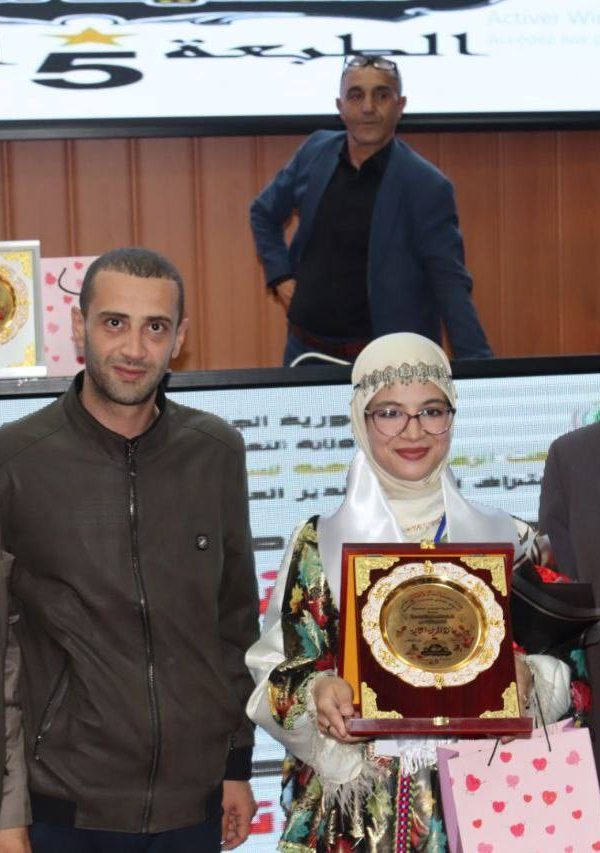
إختتام فعاليات المسابقة الوطنية للتنشيط الإذاعي
اختتمت مساء أمس فعاليات المسابقة الوطنية للتنشيط الإذاعي في طبعتها الخامسة تحت شعار “عدنا لنرتقي” التي تحتضنها جامعة عباس لغرور خنشلة؛ وتنظمها مديرية الخدمات الجامعية- خنشلة. انتهت المسابقة بتتويج كل من: الطالبة “شهيناز قابسي” ممثلة عن مديرية الخدمات الجامعية – خنشلة #بالمرتبة_الثانية وطنيا في المسابقة. الطالب “أسامة علي” ممثلا عن جامعة عباس لغرور خنشلة بجائزة ولقب #أحسن_صوت_إذاعي في المسابقة. هنيئا لطلبتنا الأعزاء هذا التتويج...اقرأ أكثر
نتائج السداسي الرابع سنة ثانية ليسانس علوم مالية ومحاسبية
الاجابة النموذجية نتائج المواد نتائج السداسي...اقرأ أكثر
نتائج السداسي الثاني سنة اولى ماستر ادارة اعمال
الاجابة النموذجية نتائج المواد نتائج السداسي ...اقرأ أكثر
